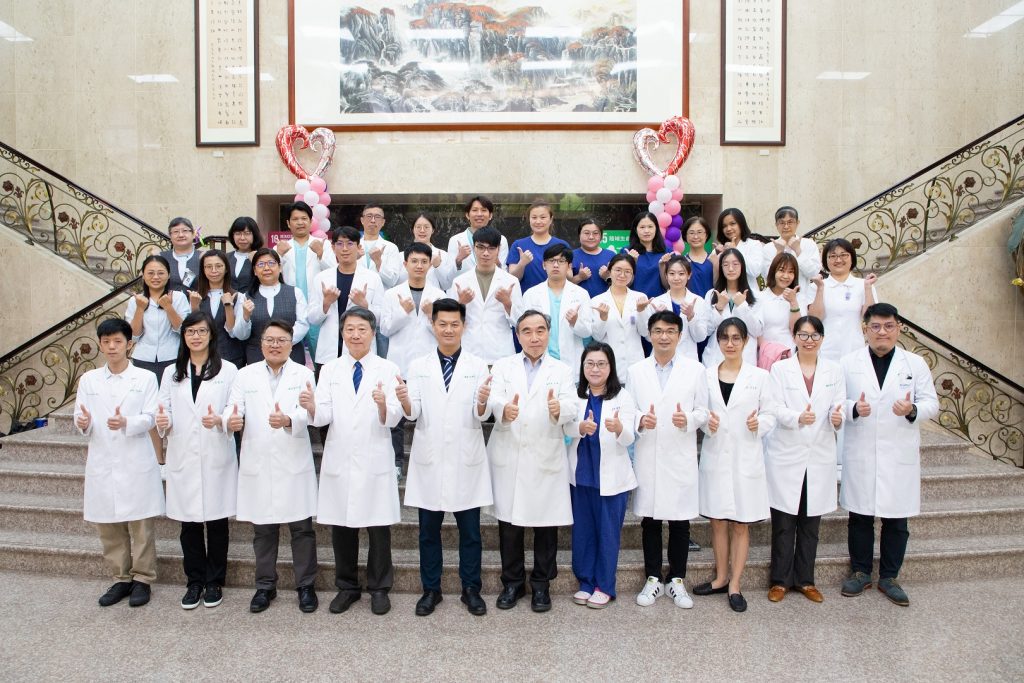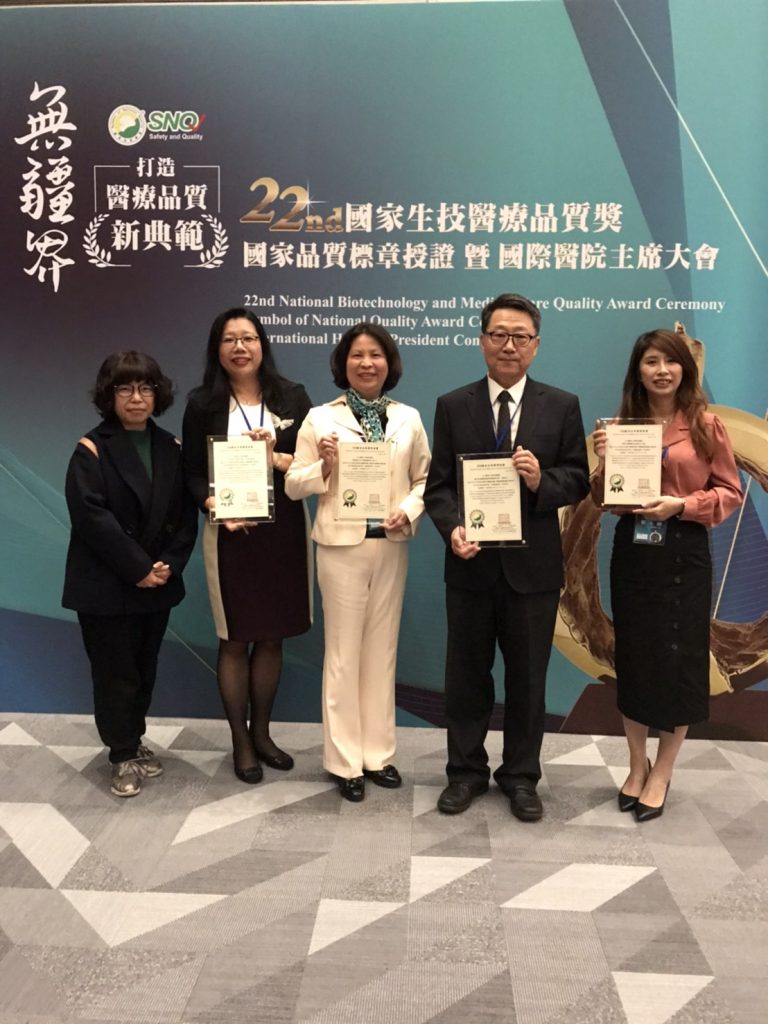Our Attending Radiologists:
| Yeu-Sheng Tyan | Chao-Yu Shen | Da-Ming Yeh | Teng-Fu Tsao |
| Ming-Chi Wu | Hsin-Hui Huang | Kai-Lun Cheng | Jhih-Wei Chen |
| Keng-Wei Liang | Shin-Chun Kuo | Yung-Yin Cheng | Pin-Hsien Lai |
| Neng-Yu Chiu |
Outpatient Appointment Information:

Dr. Kai-Lun Cheng– (04) 2473-9595 ext. 32100 / 32101
Dr. Keng-Wei Liang – Click here to make an online appointment

History and Milestones
| Year | Milestones |
| 1966 | Chung Shan Medical University Hospital was officially established as a non-profit foundation. |
| 1972 | Dr. Ping-Li Tsai was appointed as Director of the Department of Radiology. |
| 1981 | Dr. Jung-Fu Tang received angiography training in Japan, initiating abdominal angiography at the hospital. The department installed central Taiwan’s first fourth-generation whole-body CT scanner. |
| 1986 | Dr. Chao-Tung Chien became Director of Radiology. |
| 1990 | Installed a 0.2T permanent-magnet MRI scanner, the first MRI system in central Taiwan. |
| 1991 | Installed the hospital’s first digital angiography system. |
| 1998 | Relocated to the Daqing Campus and renamed the Department of Medical Imaging. The hospital became the first in Taiwan to implement a full-hospital PACS (Picture Archiving and Communication System). |
| 2003 | Dr. Yeu-Sheng Tyan was appointed Director, and the department was upgraded to the Department of Medical Imaging. |
| 2004 | Accredited as a training hospital for radiology specialists. |
| 2005 | Introduced 40-slice and 64-slice CT scanners and a 1.5T MRI; received the Excellence Award from the Atomic Energy Council for Medical Radiation Quality Assurance. |
| 2006 | Received the Excellence Award for outstanding radiation protection management. |
| 2007 | Received continuous Excellence Awards (2007, 2008, 2010) from the AEC for radiation safety and quality assurance. |
| 2013 | Designated as a Benchmark Hospital under the National CT Radiation Quality Improvement Program. |
| 2014 | Hosted the 28th Annual Meeting and 63rd Scientific Assembly of the Taiwan Radiological Society; achieved perfect scores in the national CT radiation exposure quality audit. |
| 2015 | Introduced 3T MRI and Philips angiography systems; upgraded the 640-slice CT scanner. |
| 2016 | Received the 13th National Innovation Award for the “Patient-Centered Medical Radiation Dose Monitoring System.” |
| 2017 | Installed a new 1.5T MRI and replaced the biplane digital flat-panel angiography system. |
| 2019 | Replaced the 1.5T MRI with a 3T MRI scanner. |
| 2020 | Installed a 1024-slice CT and replaced Siemens CT with GE’s 1024-slice model; received the 16th National Innovation Award for the “Intelligent Red Dot System for Medical Imaging.” |
| 2021 | Dr. Chao-Yu Shen appointed as Director; installed a third CT scanner; received the 11th Nuclear Safety Excellence Award from the AEC. |
| 2022 | Upgraded third CT unit and replaced ultrasound systems. |
| 2023 | Hosted the 31st Annual Meeting and 72nd Scientific Assembly of the Taiwan Radiological Society. |
| 2024 | Replaced digital X-ray and fluoroscopic systems; achieved TAF medical laboratory accreditation as Taiwan’s first accredited imaging unit; received the Excellence Award for Radiation Protection and Quality Assurance (2023–2024). |
Features
Clinical Services
The Department of Medical Imaging is composed of radiologists, radiologic technologists, nurses, radiation safety officers, and administrative staff.
We provide a full spectrum of diagnostic and interventional imaging services, including X-ray, ultrasound, mammography, computed tomography (CT), magnetic resonance imaging (MRI), gastrointestinal studies, and angiography.
Through image-guided interventions, our team performs a variety of minimally invasive procedures to assist clinicians in the diagnosis and treatment of diseases, ensuring comprehensive and patient-centered care.
Education and Training
The department’s medical and radiological professionals are actively involved in teaching at Chung Shan Medical University, providing foundational courses in diagnostic imaging and radiological sciences for students from the College of Medicine, the School of Medical Imaging and Radiological Sciences, and other disciplines.
We also offer clinical training programs for residents, interns, and radiologic technologists from both within and outside the hospital, fostering the next generation of imaging specialists.
Research
The Department maintains strong, long-term collaborations with various clinical departments, university divisions, and inter-institutional partners to conduct a wide range of imaging-related research projects.
Our faculty actively publish research findings in international journals and share advancements in medical imaging technologies and clinical applications worldwide.
Facilities and Equipment
The Department of Medical Imaging is equipped with a comprehensive range of state-of-the-art imaging systems, including one of the widest-coverage CT scanners available and high-resolution 3T MRI systems.
We continue to adopt AI-assisted image analysis software to enhance diagnostic accuracy and workflow efficiency.
All examination areas are designed in full compliance with radiation safety regulations and are equipped with certified radiation protection systems to ensure patient and staff safety.
Achievements
- In 2000, Chung Shan Medical University Hospital became the first hospital in Taiwan to achieve full digital transformation of medical imaging through the implementation of a Picture Archiving and Communication System (PACS), successfully realizing a film-free hospital environment. This accomplishment earned the hospital the National Biotechnology and Medical Care Quality Award.
- The hospital has demonstrated outstanding performance in radiation protection management, receiving the Excellence Award from the Atomic Energy Council (AEC) on five separate occasions for excellence in radiation safety operations.
In recognition of its active role in promoting and supporting radiation protection education, the AEC also presented the department with a Certificate of Appreciation. - Our mammography quality assurance program has been consistently recognized, with the hospital being awarded the “Accredited Mammography Training Hospital” title by the Health Promotion Administration, Ministry of Health and Welfare, for five consecutive terms.
- In 2016, the department received the 13th National Innovation Award for the project “Patient-Centered Medical Radiation Dose Monitoring System and Its Clinical Application.”
- The hospital is also certified as a training center for mechanical thrombectomy in acute ischemic stroke, providing 24-hour emergency endovascular thrombectomy services to ensure timely and effective treatment for stroke patients.
Technical Advantages
- Key Feature
Our department is committed to a patient-centered approach, achieving optimal radiation dose management under the guiding principle of ALARA (As Low As Reasonably Achievable) to ensure both diagnostic accuracy and patient safety. - Innovations
- Developed a personalized dose-tracking system for computed tomography (CT) and interventional radiology procedures.
- Established the first automated system in Taiwan for creating and analyzing Diagnostic Reference Levels (DRLs) in CT imaging.
- Built the nation’s first intelligent imaging report teaching system, integrating structured reporting and AI-assisted education.
- Pioneered radiofrequency ablation (RFA) for benign thyroid nodules in Taiwan.
- Introduced embolization therapy for inflammatory joint pain, the first of its kind in the country.
- Educational Excellence
- Clerkship and General Residency Training: Employs a case-based learning model in diagnostic imaging education, earning repeated recognition as an Outstanding Teaching Unit.
- Radiologic Technology Interns: Implements DOPS (Direct Observation of Procedural Skills) to emphasize clinically oriented training and actively promotes EPA (Entrustable Professional Activities)-based multi-faceted assessment methods.
Future Prospects
The Department of Medical Imaging will continue to advance in minimally invasive image-guided therapies, offering patients diverse treatment options such as endovascular embolization and recanalization for cerebrovascular diseases, comprehensive thyroid ablation procedures, embolization for inflammatory joint pain, prostatic artery embolization for benign prostatic hyperplasia (BPH), and Yttrium-90 (Y-90) radioembolization.
We are actively pursuing research on radiation-dose regulation and optimization, and expanding our studies in precision imaging and artificial intelligence–based clinical applications.
By introducing new medical technologies and innovative treatment approaches, the department aims to develop into an internationally recognized center of excellence in medical imaging, committed to patient safety, precision, and innovation.
Awards and Achievements
Symbol of National Quality (SNQ) Award – Innovative Minimally invasive treatment for thyroid nodules

Symbol of National Quality (SNQ) Award – Seeing optimized radiation dose and quality of computed tomography

Commitment to Impartiality and Confidentiality
The management and all personnel of the Department of Medical Imaging are fully committed to upholding impartiality and confidentiality in all examinations.
We pledge to follow our quality policy to safeguard patients’ rights and interests at all times.
Commitment Details
- All personnel shall strictly protect any confidential information, privacy, or personal data obtained during examination procedures. No disclosure of such information is permitted without legitimate cause.
- The Department shall not collect any patient data unrelated to the examination. All examination results and reports are retained as original records within the department for traceability and quality control purposes.
The Department is responsible for ensuring the confidentiality of all patient information. Without prior consent from both the patient and the department’s management, no report or data may be copied or transmitted to any third party. - All departmental policies, examination processes, and procedures are free from discrimination and are conducted with full independence and fairness.
The Department firmly rejects any commercial, financial, or external pressure that may compromise impartiality or objectivity, and assumes full responsibility for maintaining the integrity of its operations.
Feedback and Suggestions – Click here to send your feedback
Service Hours:
Emergency Services: 24 hours
Outpatient Services:Monday–Friday, 08:00–12:00, 14:00–17:00, 18:00–21:00
Consultation Phone:(04) 2473-9595 ext. 32100 / 32101
